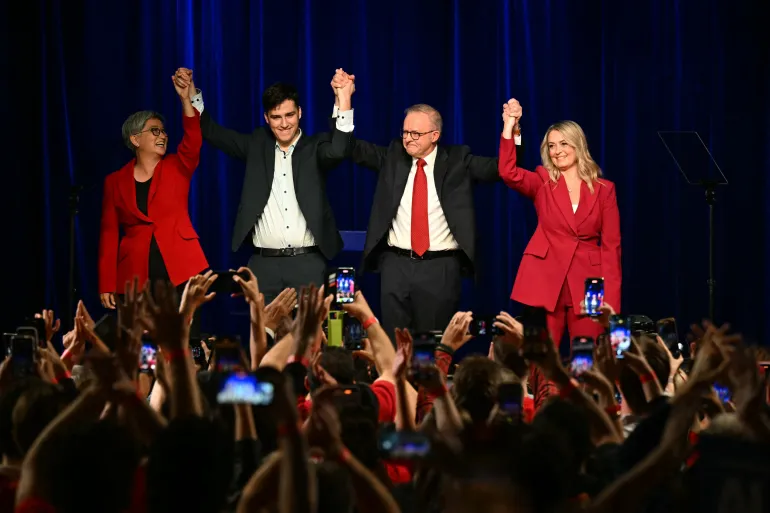Anthony Albanese has made history by becoming the first Australian prime minister in two decades to win a second consecutive three-year term, following a commanding victory for his Labor Party in an election dominated by the cost-of-living crisis.
On Saturday, early results pointed to Labor securing an unexpectedly large parliamentary majority. Peter Dutton, leader of the conservative Liberal Party, conceded both the national defeat and the loss of his own seat in a dramatic blow to the opposition.
In his victory speech in Sydney, Albanese struck a defiant and optimistic tone, pledging to navigate Australia through turbulent global conditions with a uniquely local approach.
“Australians have chosen to face global challenges the Australian way, looking after each other while building for the future,” he told cheering supporters. “We do not need to beg or borrow or copy from anywhere else. We do not seek our inspiration overseas. We find it right here in our values and in our people.”
“For fairness, aspiration and opportunity for all,” he added. “In this time of global uncertainty, Australians have chosen optimism and determination.”
Dutton accepted full responsibility for what he called “an historic occasion” for the Liberal Party. He was defeated in his long-held Dickson seat by Labor’s Ali France, a former journalist and communications adviser who campaigned on easing the cost of living through tax reform, affordable medicine, and increased public healthcare and education funding.
Commenting on the election, Liberal senator James Paterson suggested “the Trump factor” may have influenced the outcome, referencing the shadow cast by former U.S. President Donald Trump’s volatile global policies during the six-week campaign.
While Trump’s reemergence on the world stage generated international interest in the Australian election, voters at home were primarily focused on domestic pressures—rising living costs, housing affordability, healthcare, and climate change.
Labor’s victory also marks a significant consolidation of power, completing a comeback that began in 2022, when the party secured 77 out of 151 seats in the House of Representatives. In that election, Labor also won 25 Senate seats, while the Coalition held 30 and the Greens 11.
To govern outright, a party must hold at least 76 seats in the House. Without a majority, parties can form a minority government through coalitions with independents or smaller parties. With projections now showing a strengthened mandate for Labor, Albanese’s second term will likely see an emboldened push toward his domestic agenda.






